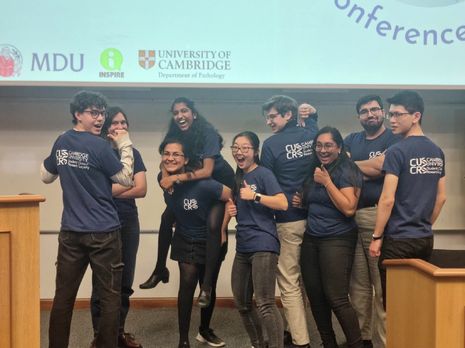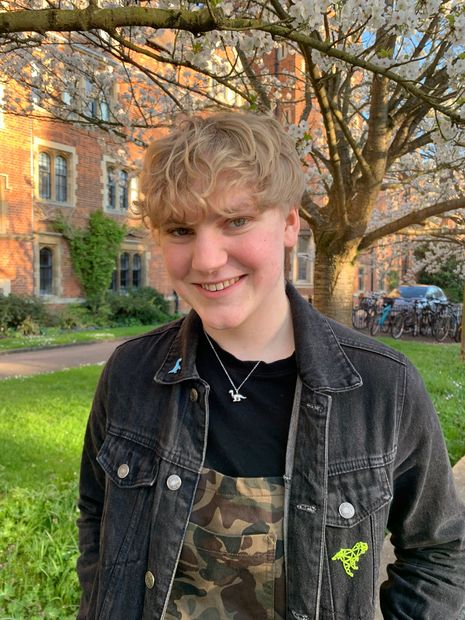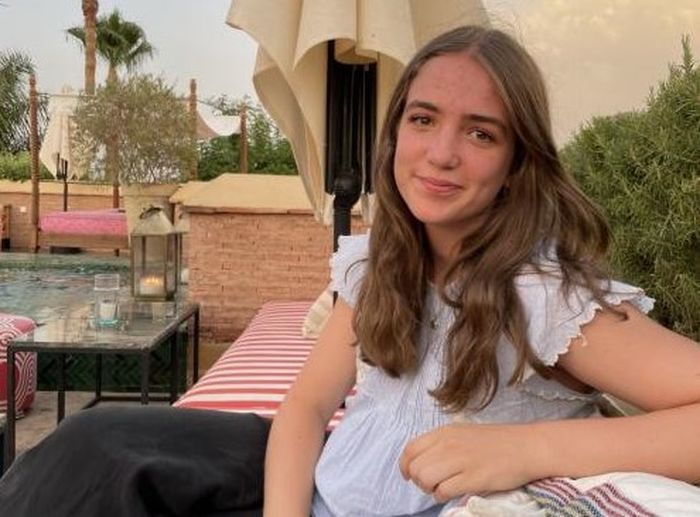Cambridge Students INSPIRE in Research Showcases
Is CamFess Classist? Alex Berry and Senior Science Editor, Suchir Salhan, find out more about student research conferences

At leading academic institutions like Cambridge, it’s not just the academics who are doing important research. Many students undertake research projects during their degrees or over the holidays, with many of these having the potential to have lasting benefits in their respective fields of research. It’s safe to say that we weren’t aware of just how many opportunities there are available to students. Therefore, we set out to learn about two student research conferences that have been taking place over the Easter vac.
Is CamFess classist?
I’ve spent both my summers in Uni doing research. I found that it’s a great way to work closely with leading academics in your field on some interesting projects (and, perhaps, even spark an interest in a new research direction) while gaining valuable experience.
I spoke to third-year linguist Romany Amber, who is fresh off presenting their research on Classism in CamFess at the ULAB Linguistics Student Conference. The project (available here) was sparked by Romany’s experience as Christs JCR Access Officer for a few years and an internship in the college admissions office.
“Cambridge students are not necessarily good at talking about class”
“Camfess as a platform is cool and interesting, and is a place where wealth and social class come up a lot, in discussions around Cambridge culture, bursaries, May Balls, formals etc.”
“Cambridge’s reputation as a staunchly middle/upper-class culture is something that comes up a lot as a concern for working-class students – the way Oxbridge is talked about in the media upholds this idea and I’ve seen how this puts people off applying.”
Romany found that “class is discussed on Camfess with much greater frequency than British-English Internet-users at large, although this is more true of words relating to the upper end of the social class scale: words like ‘middle-class’, “privileged” and ‘posh’ were mentioned disproportionately more often than ‘working-class’ or ‘poor’.”
“Camfess subverts a lot of the trends found in analyses of mass media in the UK: crucially, the posts I looked at pretty much unanimously acknowledged class as a contemporary social divider and working-class people as a systemically disadvantaged group.”
“However, the posts were very middle-class-centric and failed to examine some of the class-related underpinnings of issues they discussed. There was also a tendency to apply class-related language to issues like college disparity, which may reveal a lack of understanding of class inequality (though I discuss some other potential explanations too).”

“Cambridge students are not necessarily good at talking about class, but they are actively exploring it in a far more nuanced way than a lot of British media, like the harmful depictions of working-class people as “lazy” or “scroungers” (think of TV shows like Benefits Street or any article in the Daily Mail…)– I discuss some potential reasons for the differences between Camfess and mass media.”
“I think anonymous online platforms provide a great opportunity to look at what people actually think about social issues and how they are discussed by people on the ground, rather than journalists or TV producers.”
“As the ULAB Conference is specifically for undergraduates, it felt like a gentle(r) introduction to conference presenting, and a good opportunity to get some feedback on a research project I’d done over the summer last year.”
Alex: INSPIRING Research by Clinical Medics
Cambridge University Students’ Clinical Research Society (CUSCRS) organise the INSPIRE conference to discuss their research with leading academics and inspire other students to pursue their own research interests.
“Student Research has really been a game-changer for me.”
Why are labrador retrievers prone to obesity? As the first time the conference had been held since the pandemic, the best oral presentation was awarded to former Varsity Science Editor Sambhavi Sneha Kumar. She investigated the associations between specific signalling pathways and obesity in labrador retrievers, which have a genetic bottleneck due to pure breeding, by studying the effects of genetic variation in certain gene sequences on obesity. This animal model could potentially help find similar regions of genetic variation in the human genome and gain an understanding of the genetic factors that influence predisposition to obesity, and therefore possible new therapies to treat obesity in the future.
CUSCRS Co-President Michał Duchniewicz said, “We had such a good variety of presenters, with everything from molecular research up to some machine learning on prostate volume, which I found really interesting.” He was “really glad about the quality of posters we received and the oral presentations, and the judges were also very impressed…”, which is big praise given that the judging panel consisted of experienced academics and researchers.
“You’d think that Cambridge is a place in which people want to do research, but we still have to promote it and get more people involved as many of us are not that aware of what opportunities there are around us.”
Get involved in Student Research!
Suchir: Student Research has really been a game-changer for me. At the end of my first year, I got paid (pretty well!) to work as a UROP Intern (which stands for Cambridge’s Undergraduate Research Opportunities Program) in the Computer Lab learning how to use some of the machine learning models that underpin ChatGPT. I’d wholeheartedly recommend UROPs to any student interested in research. Colleges can even subsidise aspects of your research, such as reducing rent while you’re conducting it– which Caius did for me in my second year.
Student research can address key issues that may be overlooked by leading academics, like the thought-provoking questions Romany’s research raises about the Cambridge student community. Equally, it can lay the foundations for future research projects, like the INSPIRE conference.
Alex: It can be amazing to think that your friends are conducting research that has such important potential impacts on our society, but it is also something that we should acknowledge and appreciate more.
 Features / Should I stay or should I go? Cambridge students and alumni reflect on how their memories stay with them15 December 2025
Features / Should I stay or should I go? Cambridge students and alumni reflect on how their memories stay with them15 December 2025 News / Dons warn PM about Vet School closure16 December 2025
News / Dons warn PM about Vet School closure16 December 2025 News / Cambridge study finds students learn better with notes than AI13 December 2025
News / Cambridge study finds students learn better with notes than AI13 December 2025 News / SU reluctantly registers controversial women’s soc18 December 2025
News / SU reluctantly registers controversial women’s soc18 December 2025 News / News In Brief: Michaelmas marriages, monogamous mammals, and messaging manipulation15 December 2025
News / News In Brief: Michaelmas marriages, monogamous mammals, and messaging manipulation15 December 2025









